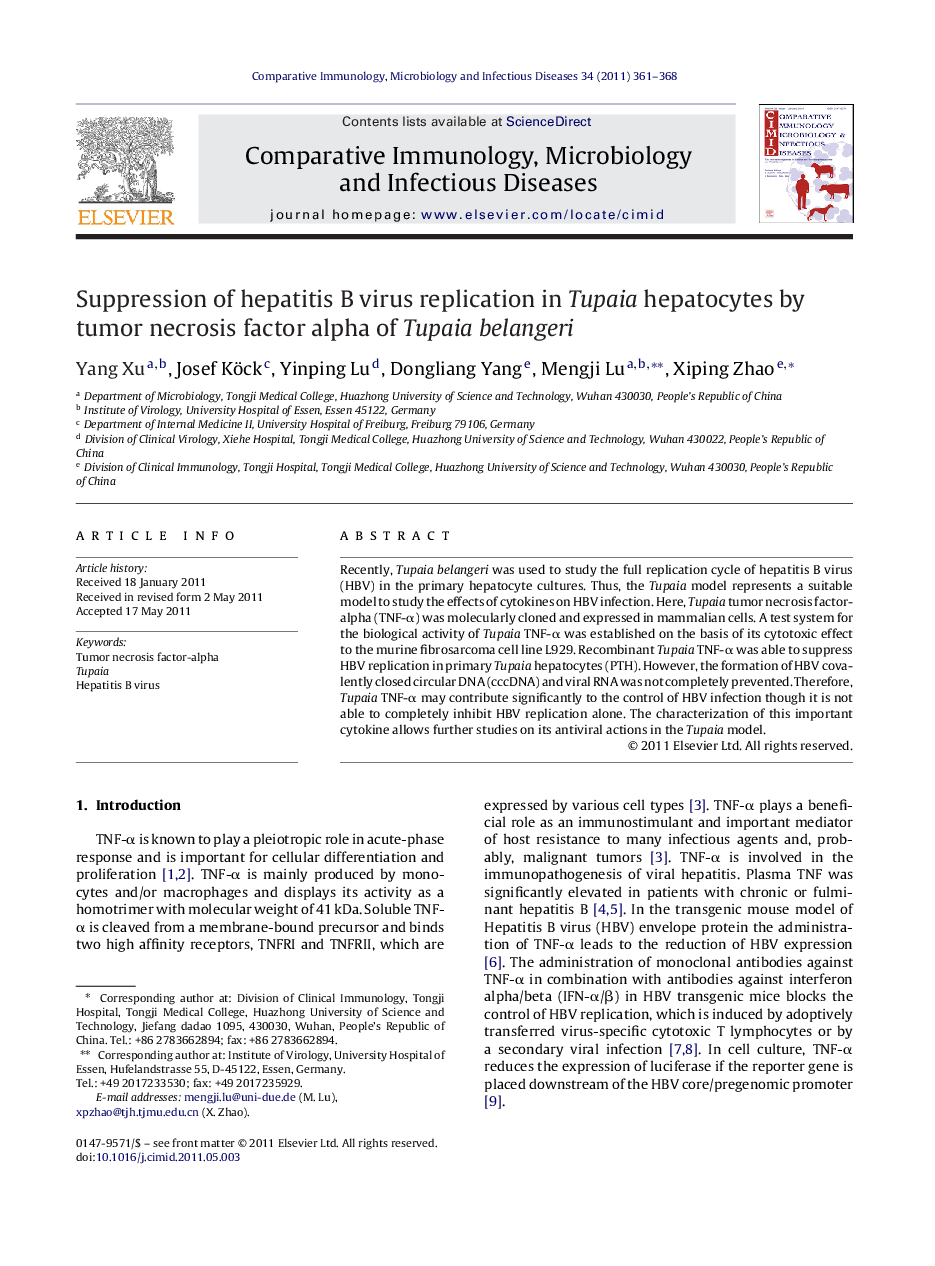| Article ID | Journal | Published Year | Pages | File Type |
|---|---|---|---|---|
| 2428395 | Comparative Immunology, Microbiology and Infectious Diseases | 2011 | 8 Pages |
Recently, Tupaia belangeri was used to study the full replication cycle of hepatitis B virus (HBV) in the primary hepatocyte cultures. Thus, the Tupaia model represents a suitable model to study the effects of cytokines on HBV infection. Here, Tupaia tumor necrosis factor-alpha (TNF-α) was molecularly cloned and expressed in mammalian cells. A test system for the biological activity of Tupaia TNF-α was established on the basis of its cytotoxic effect to the murine fibrosarcoma cell line L929. Recombinant Tupaia TNF-α was able to suppress HBV replication in primary Tupaia hepatocytes (PTH). However, the formation of HBV covalently closed circular DNA (cccDNA) and viral RNA was not completely prevented. Therefore, Tupaia TNF-α may contribute significantly to the control of HBV infection though it is not able to completely inhibit HBV replication alone. The characterization of this important cytokine allows further studies on its antiviral actions in the Tupaia model.
